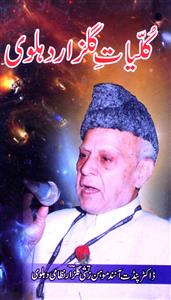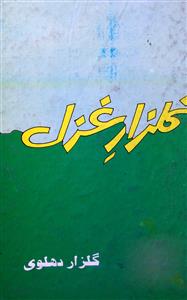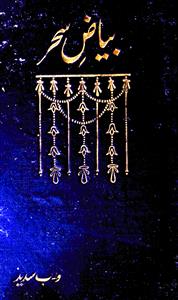 For any query/comment related to this ebook, please contact us at haidar.ali@rekhta.org
For any query/comment related to this ebook, please contact us at haidar.ali@rekhta.org
About The Author
Perhaps one of the last strings on the instrument that could genuinely play the tragic melody of India’s partition and could unshakably maintain the notes of the country’s treasured Ganga-Jamani Tahzeeb, Gulzar Dehlvi finally retired to silence after long echoing these rhymes that would’ve otherwise been lost in the tumult of time.
Born as Anand Mohan on 7th July 1926, Gulzar Dehlvi was one of the most revered and significant poets whose contributions were not merely limited to the realm of poetry but extended as far as India’s fabulous heritage and tradition. This old, wise man of Urdu literature has been conferred with innumerable titles and awards the latest of which included a rather unique honor presented by the Vice-President of India for his altruistic service towards the Urdu language. His passing away has come to a shock to everyone. Aged 94, he had recently fought off a disease like Corona Virus with his unwavering will to live. This feat of his was published in several major newspapers with bold headlines. But in a span of a few days, he has left all of us, quietly leaving his mortal coil at his residence in Greater Noida.
Gulzar toddled in a humble house of Old Delhi’s Gali Kashmirian and had a rather unique vibe to his house. Both of his parents were poets, his father Allama Tribuvan Nath Zutshi wrote with the pen name ‘Zaar’ which means to cry or lament and his mother Brij Rani Zutshi took up the pen name ‘Be-Zaar’ which means sad, dejected. This boy grew up reciting and memorizing verses in Urdu, Persian, and even Shlokas of Sanskrit. Interestingly, his Ustad, after heeding to his poetry, accorded him his pen-name ‘Gulzar’ which means a bed of roses, because his parents’ pen names were quite melancholy and their son’s pen name deserved to be more on the sunny side.
The love for Delhi and its ethos ran like blood in his veins. Originally a Kashmiri Pandit, Gulzar Sahib was acquainted with the teachings of all the religions, as a child he imbibed the Gita, the Bible, and the Holy Quran, and learned a common precept from all these holy texts, peace. What followed was a truly selfless and tenacious life that was spent in spreading the same message, he was really a pioneer of unity and brotherhood.
If ever there would be a portrait of secularism, Gulzar Sahib would take the frame- dressed invariably in a white sherwani and Churidar, a Nehru Topi, a pearly chain with a couple of lockets- one with a Shloka from Gita and the other with an Ayat from Quran- and a rose on his chest, this mesmerizing figure made one instantly enchanted with his persona. A captivating orator with a razor-sharp memory, Gulzar Sahib knew how to keep an audience interested- sharing anecdotes, narrating telling accounts of events he really made you ask for more.
A fine poet, a learnt scholar, he was the true successor of his Ustad Bekhud Dehlavi, Gulzar Sahib was appreciated and cherished by all his contemporaries like Jigar Moradabadi, Firaq Gorakhpuri, Maulvi Abdul Haq, Allama Niyaz Fatehpuri, Josh Malihabadi, and many others. He did write poems in Urdu but he was well-versed in Hindi, Persian, Sanskrit, and Arabic and, of course, his native tongue Kashmiri. An alumnus of Hindu College, it was he who held the crucial and prestigious position of the foremost editor in chief for the magazine ‘Science ki Duniya’, Urdu’s first journal dedicated to science and technology, launched in the year 1975.
We never saw someone like him while he was alive, the chances that someone like him will appear now are slim and slender. With his sad demise, a vacuum has been created not just in the sphere of Urdu literature but in the entire expanse of India’s composite culture.
 For any query/comment related to this ebook, please contact us at haidar.ali@rekhta.org
For any query/comment related to this ebook, please contact us at haidar.ali@rekhta.org












